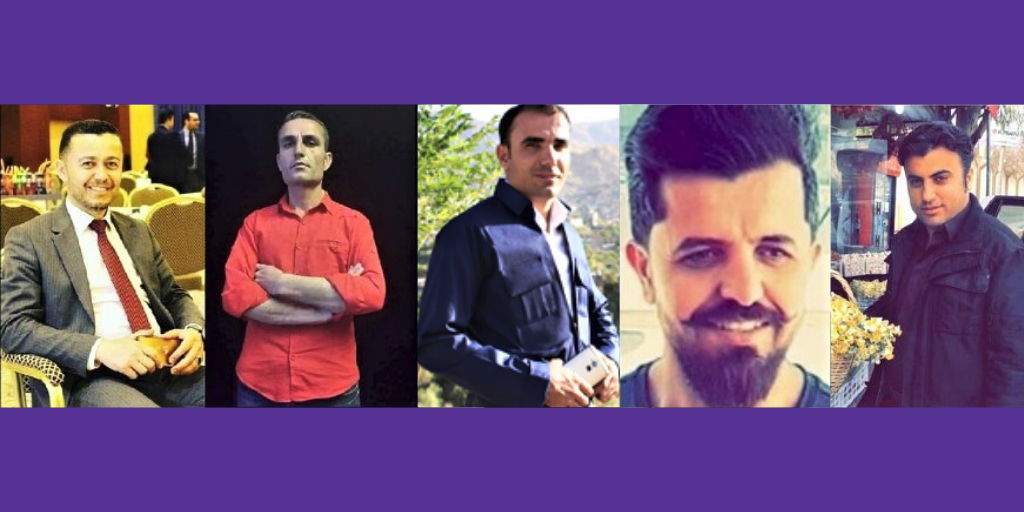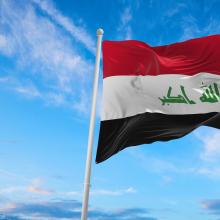July 09, 2021

Liberal reputation vs. increasing repression
In recent years, the semi-autonomous Kurdistan Region of Iraq (KRI) was described as a safe haven for the persecuted from all over Iraq and a place of free expression and tolerance. However, since March 2020, journalists, human rights defenders, activists, protesters and other dissenting individuals in the region have increasingly been subjected to intimidations, threats, harassment and arbitrary detention at the hands of the regional authorities.
In the context of the mid-August 2020 demonstrations, demanding an end to corruption and better public services, the Kurdish security forces arrested numerous journalists, community activists, professors and others for reporting on or attending the protests, writing news articles in relation to the demonstrations or otherwise exercising their right to freedom of expression and brought them to detention centres.
Many of those arbitrarily detained by the authorities faced incommunicado detention, enforced disappearances for periods of up to three months and torture and other ill-treatment during their detention.
Some of the arrested were held for lengthy times without access to court, only to be released without a charge. Others were subjected to criminal proceedings, including journalists and activists Sherwan Amin Naou (commonly known as Sherwan Sherwani), Ayaz Karam Rachid, Hariwan Issa Mohammad, Kahdar Hammad Amin Zebari and Mulla Shafan Saeed Omar Brushki (Dosky) who were sentenced for “acts prejudicial to the security stability and sovereignty of the Kurdistan Region of Iraq”.
Profile of the accused
Sherwan Sherwani is an independent journalist who mainly investigates and denounces cases of human rights violations, social injustice and corruption in the KRI. He has also regularly participated in and covered demonstrations in the region. He has been subjected to harassment and intimidation by the Kurdish authorities due to his journalistic activities already in the past, including through detention on the basis of defamation charges.
Ayaz Karam Rachid, Hariwan Issa Mohammad, Kahdar Hammad Amin Zebari and Mulla Shafan Saeed Omar Brushki (Dosky) were active in the Bahdinan region of the KRI. They either covered or participated in anti-government protests and have faced similar reprisal measures as Sherwan Sherwani in the past, such as being detained in police stations for several hours.
The five activists and journalists are known to be critical of the Kurdistan Regional authorities. They were arrested in autumn 2020 in the context of the Kurdish security forces’ crackdown on protest organisers and journalists. They either participated in or covered the protests or topics related thereto, such as corruption, human rights violations and social injustice in the region.
All of them were subjected to threats as well as physical and psychological during the initial stages of their detention. They were, moreover, forced to sign confessions, which contained self-incriminating statements and were used against them in court. It was further reported that they were held in an overcrowded cell and were denied regular visits from their families and regular contact with their lawyers. Sherwan Sherwani and Mulla Brushki (Dosky) were, moreover, forcibly disappeared and held incommunicado for 19 days, respectively two months.
A flawed trial
On February 16, 2021, the five journalists and activists were sentenced to six years’ in prison, followed by a placement under police surveillance for a period of five years. The defendants were accused of having gathered information and passed it on to foreign actors outside of Iraq for money; by gathering information about them, having placed the lives of senior Kurdistan Regional authorities and foreign officials at risk; having collected arms in order to supply them to an unidentified armed group; and having supplied the Kurdish Workers Party (PKK) with sensitive information.
Observers of the trial expressed serious concerns that basic fair trial guarantees were not respected: According to the United Nations Assistance Mission for Iraq (UNAMI), the defence lawyers were denied access to the victims’ case files, not given adequate time for preparation for the trial and prohibited from challenging secret key evidences used against the defendants. Moreover, essential evidences used by the prosecution were provided by a secret informant. The defendants’ allegations that the confessions used against them were extracted under torture were rejected by the court, without conducting a thorough review of these allegations.
The Committee to Protect Journalists further reported that Kurdish Security Council members were present at the trial and prevented the judges from summoning one of the defendants to testify; that the prosecution casted routine interactions with diplomatic personnel and international organisations as suspicious; and that the transcripts of social media chats between the defendants produced in court as evidence did not contain any incriminating anti-state assertions.
On April 28, 2021, the conviction and sentence of the defendants was upheld on appeal. The defendants were additionally accused of having contacted the American as well as the German consulate and received money from them, the illegality of which is not evident.
On June 27, 2021, following a request by the defendants’ lawyers for a “Correction of the Cassation Decision”, the sentence was confirmed for a second time. According to one of the defendants’ lawyers, the judges who replied to the request for correction were the same ones who had already decided in the original trial and who had also reviewed their own decision as part of the first appeals procedure.
MENA Rights Group strongly condemns the violations of basic fair trial rights of the defendants and calls for an end to the ongoing repression of peaceful critics by the Kurdish authorities. On July 7, 2021, MENA Rights Group submitted the cases of the five defendants to the UN Working Group on Arbitrary Detention.






